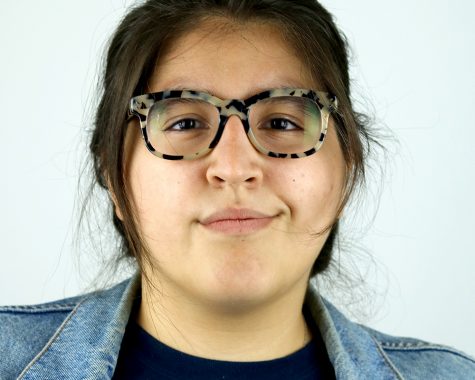Workgroup No. 8 hears new ideas, defines micro degree
February 26, 2017
Workgroup No. 8, Academic Visioning I, discussed two concepts that could help students gain experience for their intended career at its meeting Friday.
Technology professor Gabe Grant presented ideas for a new research, education and applied learning center, or REAL Center, as well as a Digital and Multimedia Center.
He said the REAL Center, is intended to be attractive to students and improve their overall experience at Eastern by helping them gain skills for their future careers.
The center would be used by students who want to find a job, Grant said, whether it is on campus or in the community, that will help them pay for school.
After visiting Polytechnic schools for different conferences, Grant said he observed the model they use and found a similar one other state universities adopted.
He said he noticed those schools offer opportunities for students to work in their respective area of study on campus, thus acquiring the job experience they need.
“A lot of those students from those schools end up working in the print and copy center, or they may work in the web development offices, and people understand that it is part of their degree program,” Grant said in regards to the Polytechnic school model he observed. “They work with them, they educate them on some of the things they need to look out for (and the students) also have an internship requirement outside of that.”
Grant said when the students are done with the program, they end up with an applied skill set from not only what they learned in the classroom but also what they have been able to do for the university.
He said some of the schools extend their program outside to the surrounding community, where they will contact local employers and ask what the staff needs, what is required for part-time work and if they could make that job available to students.
At first, Grant said the center would have just been for students interested in media but later realized students in any major would be able to find a use for it.
The REAL center would help, he said, because after having conversations with students on campus, they tell him that the applied experience they currently get is a let down.
“The student I had in mind was a (management information systems) major and they would really have liked to have some courses or work on campus in an area that could have used and applied his skills,” Grant said. “Instead, the only place that would take him was dining centers.”
Technology professor Peter Ping Liu asked what the difference is between the “REAL Center” and Career Services.
“I don’t think Career Services is fulfilling this requirement right now for students, so we’re not taking a real in-depth or close look at what the students’ career goals are,” Grant said.
Grant said he thinks of Career Services when students are getting ready to go out the door, because they would help them with resumes and setting them up at job fairs.
However, he said the REAL Center would be a much more intentional effort to work with students and help them achieve their career goals while still at Eastern.
Special education professor Amy Rosenstein said this potential center could also work as a sister group with Career Services.
The second concept Grant proposed was a Digital and Multimedia Center, which would be one place for departments to go to rather than having them go through different channels to get multimedia tasks done.
Grant said the center would be a centralized area for all sorts of resources and equipment instead of each department having their own equipment, which mirrors other departments.
The center would also offer work for students interested in media fields such as social media work and webpage design.
Grant said students would not be taking any jobs away if the center were created.
Instead, students would work on smaller tasks and minor details while university employees concentrate on the bigger tasks, he said.
Workgroup members also came to a conclusion on what they consider a micro degree.
Workgroup chair Jeff Stowell, a psychology professor, said any existing courses with a more flexible format of 9 to 12 credit hours in fields such as social media, leadership or education will be called a micro degree.
He said he does not believe the Workgroup is at the point where they can create or recommend a micro degree, but Eastern President David Glassman might ask them for possible suggestions after the group submits its first draft of recommendations on Wednesday, March 15.
Analicia Haynes can be reached at 581-2812 or achaynes@eiu.edu




































































